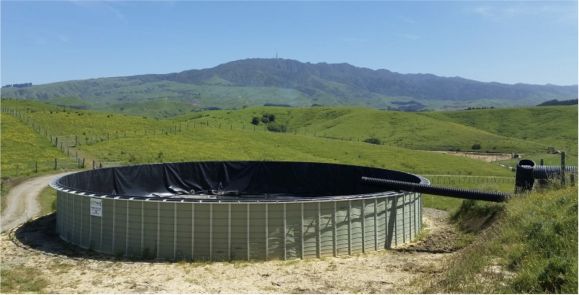
cypruswell
Literature for everyone5 Tips for Maintaining Your Effluent Holding Tank: A Complete Guide
Wednesday , 1, May 2024 Marketing and Advertising Comments Off on 5 Tips for Maintaining Your Effluent Holding Tank: A Complete Guide
Effluent holding tanks are crucial for storing waste materials in various industries such as agriculture, manufacturing, and wastewater treatment. To ensure the longevity and efficiency of your effluent holding tank, proper maintenance is essential. To get more details about effluent holding tank, you may contact Kiptank.
1. Regular Inspection
Inspect the Tank and Components
- Check for any signs of cracks, leaks, or damage on the tank walls.
- Inspect the inlet and outlet pipes for blockages or obstructions.
- Ensure that the tank cover is properly sealed to prevent odors and leaks.
Test the Tank's Capacity
- Monitor the level of waste material regularly to prevent overfilling.
- Keep track of the tank's capacity and schedule timely pump-outs as needed.
2. Proper Cleaning and Maintenance
Regularly Empty the Tank
- Schedule routine pump-outs to remove accumulated waste and sludge from the tank.
- Prevent solids from settling at the bottom of the tank to avoid clogs and blockages.
Clean the Interior Surfaces
- Use appropriate cleaning agents to remove residue and buildup inside the tank.
- Rinse the tank thoroughly to eliminate any remaining debris or contaminants.
3. Monitor pH Levels
Regularly Test pH Levels
- Monitor the acidity or alkalinity of the effluent to prevent corrosion or damage to the tank.
- Adjust pH levels as needed to maintain a neutral and safe environment within the tank.
4. Preventive Maintenance
Address Minor Issues Promptly
- Repair any small leaks, cracks, or issues as soon as they are discovered.
- Prevent minor problems from escalating into major repairs that can be costly and time-consuming.
Inspect and Maintain Components
- Regularly check valves, fittings, and other tank components for wear and tear.
- Replace damaged or worn-out parts to ensure the proper functioning of the effluent holding tank.
5. Professional Maintenance Services
Hire Experienced Professionals
- Consider hiring experts in effluent holding tank maintenance for thorough inspections and servicing.
- Professional services can help identify potential issues early on and provide effective solutions.
Schedule Routine Maintenance Visits
- Establish a maintenance schedule with a professional service provider to ensure regular upkeep of your effluent holding tank.
- Follow the recommended maintenance plan to extend the lifespan of your tank and prevent unexpected breakdowns.
By following these five tips for maintaining your effluent holding tank, you can ensure optimal performance and durability for years to come. Regular inspection, proper cleaning, monitoring pH levels, preventive maintenance, and professional services are key components of effective tank maintenance.